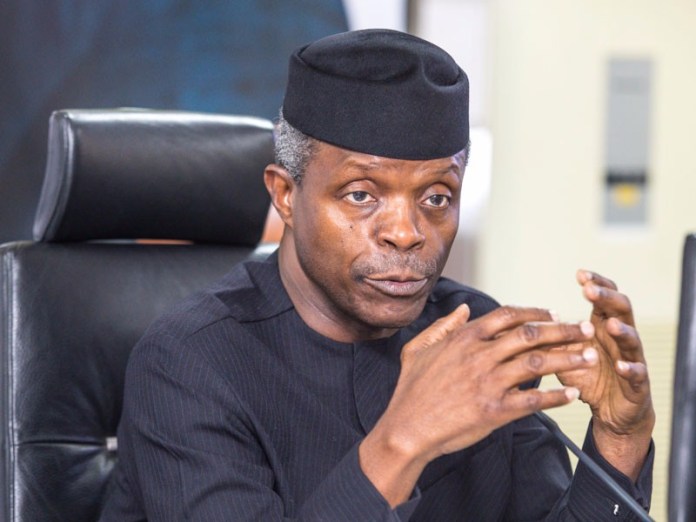- African Leaders, Dangote Move to Change Continent’s Economic Narrative
African business and political leaders have expressed optimism of using the Afrochampions Initiative to change the continent’s socio-economic narrative through a consensus on seven key issues ranging from regional and continental integration to global representation.
Designed to promote economic development in Africa, the initiative among other issues, seeks to encourage the emergence of home-grown pan-African companies that will help to transform and integrate the continent through cross-border investments as well as reduce poverty rate.
Some of the target issues the initiative seeks to address include continental and regional integration, structural transformation, job creation and youth development, local content and SME development, taxation, environment, sustainability and governance and global representation.
The initiative, jointly chaired by African’s richest man, Alhaji Aliko Dangote, and former President of South Africa, Thabo Mbeki, called for greater integration of African economies to enable the continent to develop free trade among African Union member nations.
According to the promoters of the initiative, there is a need for Africa to create over 10 million jobs yearly to cater for its growing youth population and to achieve this, opportunities in the regional markets have to be harnessed by home-grown pan-African companies.
Speaking at the unveiling of the initiative, Vice President Yemi Osinbajo, noted that the Continents Free Trade Area Initiative (CFTA), launch of the African passport and free movement of persons showed how the continent intended to grow in regional integration, which also showed how quickly the continent could move.
He said the conference of the African Heads of State in July focused on a lot of those initiatives “and I am convinced that we are on the threshold of seeing a deeper and more integrated African market.’’
The Vice President explained that the move was a strategic priority for the country to enable a single integrated African market deep enough to exploit all the potential in the country.
He added that there was a sense of urgency in the public sector initiative, which the private sector would bring, noting that the administration believed in the Afrochampions initiatives.
“We think that it is the private sector that would do what is required to bring the urgency and the sense of mission to all the plans in the AU.
“We will like to see greater synergy and collaboration in the Africa champions while all the organs of the AU get involved in economic integration issues”.
He said that in the past few years it had become obvious to many African countries that both the momentum and common sense were in favour of the private sector leading the economies of the continent.
He further said the sector was championing the initiative to drive intra-African trade and commerce.
“The role of the public sector is to catalyse the umpire, to incentivise but whether we like it or not the private sector in Africa is already building world class grounds and trading everywhere,’’ he added.
Osinbajo noted that it was obvious that Afican giants had sprang up in manufacturing, banking sector and in telecommunications.
On his part, former President Olusegun Obasanjo expressed appreciation and commendation for the initiative and added that while the initiative had put the private and public sectors together, it needed to integrate the financial institutions.
He thanked the Vice President for attending the inaugural meeting, adding that his presence gave impetus to the partnership.
Obasanjo noted that the inaugural meeting was good and noted that one of the things that had not been done well in Africa was to sustain initiatives.
He mentioned the Lagos Plan of Action, the Abuja treaty, NEPAD as initiatives which had not achieved their purposes before going under.
“We should not allow this one to sleep; we should continue to fan the flame of Afrochampions initiative and may God help Africa,” he added.
Dangote on his part said the Afrochampions initiative is for African businesses to cater to African needs to accelerate development in the continent and create more jobs to tackle unemployment of youths in the continent.
He acknowledged that it is the first time that leaders from Africa’s multinational companies will meet, not to discuss their sector and ad-hoc investment opportunities, but to exchange views on Africa’s transformation and on what contributions they may have.
“This is the first time that we have created venue for regular and action-oriented dialogue with public decision-makers, for the benefit of our continent. And this is the first time that a forum is being create to discuss Africa’s economic relations with the rest of the world and on how we can find a new balance with other regions and foreign players and institutions.
“We do have to change the dynamics in a way that is more favourable to Africa and Africans because as Africa’s biggest multinationals, we owe a duty towards our communities, towards the next generation of young men and women who now want to become Pan-African entrepreneurs”, he added.

 News3 weeks ago
News3 weeks ago
 Business3 weeks ago
Business3 weeks ago
 Technology3 weeks ago
Technology3 weeks ago
 Investment3 weeks ago
Investment3 weeks ago
 Banking Sector3 weeks ago
Banking Sector3 weeks ago
 Banking Sector3 weeks ago
Banking Sector3 weeks ago
 Appointments3 weeks ago
Appointments3 weeks ago
 Investment3 weeks ago
Investment3 weeks ago





























